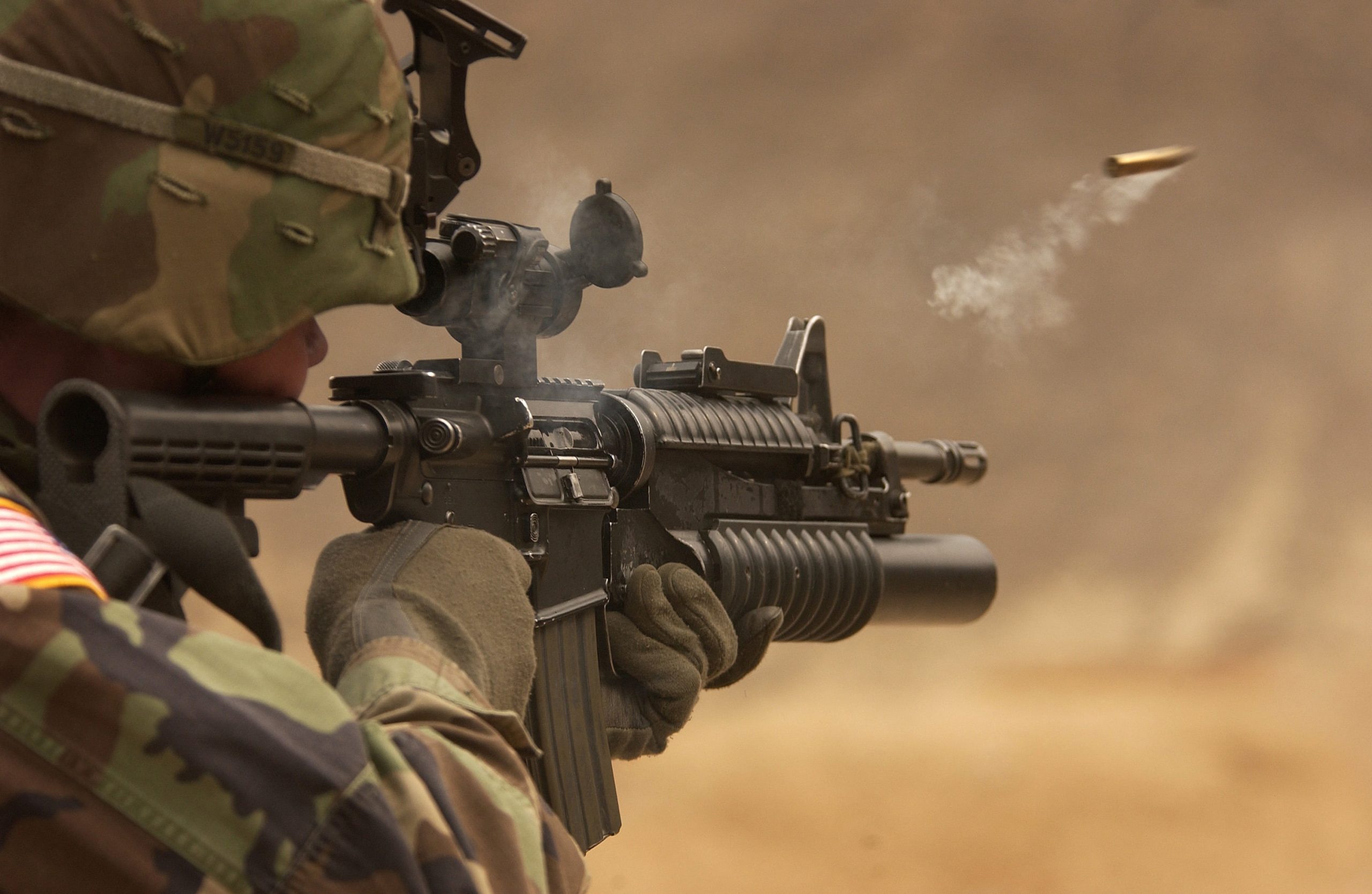
Romania began negotiations with Ukraine in Davos, on the sidelines of the World Economic Forum, on the signing of a bilateral security agreement that would provide guarantees of immediate military support in the event of an escalation of attacks by the Russian Federation or a repeat of aggression in the event of a Ukrainian victory.
Far from being warmly received in Bucharest, the news caused a stir on the political scene in Romania. The main criticism of the centre-right nationalist opposition, as well as of some political analysts, was that the announcement of the demerit of the negotiations was made by the Ukrainian presidential administration, while the Bucharest executive tried to keep it under wraps, like other issues related to Ukraine’s support. The Cotroceni Palace has not been an example of transparency when it comes to the issue of Romania’s military support to Ukraine, with President Klaus Iohannis officially stressing since the beginning of the war that it is not good to detail this topic.Given that Romania is the only neighbour of Ukraine that has started bilateral consultations on the basis of the Vilnius Group of 7 (G7) declaration of July 12, 2023, and that only one country in the world – the UK – has signed such a bilateral agreement, the caution of the Bucharest Executive in “detailing” the subject no longer seems so surprising. Moreover, with the inauguration in Romania of the European training centre for F16 pilots in Fetești, where Ukrainian pilots have been training with Romanian pilots since November, in anticipation of the US planes, which are part of the military assistance provided by Western partners, an online rumour about the establishment of a Ukrainian air base on Romanian territory has raised some concerns. The scenario of such a base, put forward by retired General Ben Hodges, former commander of US troops in Europe, has not been confirmed or denied by any Romanian official, nor has it received sufficient comment to be clarified, thus contributing to fears about the lack of transparency regarding the military support that Bucharest officials are ready to offer Kiev in the long term.
The executive did not inform the Parliament or ask for a mandate for negotiations with Ukraine
The main criticism of the way these negotiations were launched in Davos is the format in which they are being conducted. As announced by the Ukrainian side, they were conducted by the second echelon, with Kiev represented by the Chief of Cabinet of the President of Ukraine, Andriy Yermak, and the Romanian side – by the Secretary of State of the Ministry of Foreign Affairs, Iulian Fota. The biggest complaint of the nationalist opposition in Bucharest, however, is the fact that the executive did not come to the parliament to inform it and ask for a mandate for the negotiations before the negotiations started. This is not compulsory in terms of constitutional provisions – the fundamental law only requires the legislature to ratify international agreements – but perhaps it was desirable in terms of this important issue, which has major implications for the country’s security.
The outcome of the negotiations, or rather the stage they have reached, is not very clear. However, according to the Ukrainian Presidency’s website, it is known that the talks were held – at least as far as the Ukrainian team is concerned – “in accordance with the instructions of President Volodimir Zelenski” and “mark the advancement of bilateral relations between the two countries to the level of strategic partnership”.
The objectives of the Security Guarantees – agreed in Vilnius last year at the G7 meeting
Clarifications on the objectives of these agreements came only at the end of last year, also from Ukraine. According to the Deputy to the President’s Office, Ihor Jovkva, the bilateral security agreements should provide for a clear response mechanism for partners in the event of an escalation of Russian aggression or a recurrence of aggression after Ukraine’s victory, a mechanism that should be coordinated among all major countries that are signatories to the bilateral security guarantee agreements.
The objectives of the security guarantees for Ukraine, which form the basis of these discussions, were identified by the leaders of the G7 countries – Canada, France, Germany, Italy, Japan, the UK and the US – at the NATO summit in Vilnius on the 12th of July. In a nutshell, it’s about assuming the provision of modern military equipment and economic assistance for the duration of the war and even afterwards, should there be a new Russian aggression, and about “issuing bills” for the damage caused to Ukraine by Russia – estimated by the World Bank at more than 400 billion dorlar – and, of course, making it pay.

In concrete terms, the Vilnius joint statement spoke of ensuring a sustainable force capable of defending Ukraine today and deterring Russian aggression in the future by providing modern military equipment, on land, in the air and at sea, sharing intelligence and training Ukrainian forces. The Joint Statement of the 7 also discussed “strengthening Ukraine’s economic stability and resilience, including through reconstruction and recovery efforts, in order to create conditions conducive to promoting Ukraine’s economic prosperity, including its energy security”.
The start of negotiations on the bilateral Security Agreement – mentioned in the Strategic Partnership document between Romania and Ukraine
The Presidents of Romania and Ukraine signed last November a document upgrading the relationship between the two countries to a strategic partnership. In it, among other things, Romania declares its support for creating the necessary conditions – including new rail routes – for the transit of Ukrainian grain through its territory, pledges continued military support and support for the peace formula promoted by President Zelenski, “strong support for Ukraine’s progress towards the strategic goal of becoming a full member of the European Union”. Also – and last but not least – Romania declares its readiness to start negotiations on a bilateral Security Agreement. On the other hand, Ukraine is taking a first step towards resolving the long-standing conflict over the ban on the use of Romanian in schools in areas where ethnic Romanians live and promises to resolve the “problem of the artificial distinction between Romanian and the so-called ‘Moldovan’ language”. Also, another important point for Romania, the signatories “affirmed the importance of Romania’s participation in the implementation of reconstruction and rehabilitation projects in Ukraine, as well as the use of Romania’s logistics and transport infrastructure as a hub for partner countries participating in the implementation of projects in Ukraine”.
The Strategic Partnership Agreement also has some concrete references to the military support that Romania will provide to Ukraine: the training of Ukrainian pilots at the F-16 centre in Romania, with the two presidents agreeing that Ukrainian pilots will be included in the first tranche of training. “The presidents noted that this support, together with the participation of Ukrainian soldiers in other training facilities in Romania, is an important contribution of Romania to the strengthening of Ukraine’s defence capabilities,” the document said.
Romania – Ukraine’s only neighbour willing to negotiate
Only one state has so far signed a bilateral agreement offering security guarantees until the war is over – and even afterwards, until Ukraine joins NATO: the UK. The document, signed a few days ago, is an “unprecedented security agreement”, as Zelenski described it.
“If such guarantees had been reached in 1991, especially with Britain, then the war would not have started,” Zelenski said.
Of all the countries in the world, only the 7 plus the Netherlands and Romania have started bilateral negotiations for such agreements with Ukraine following the Vilnius Declaration. Only 31 joined the July Declaration and, of the total number of signatories, only 15 have expressed their readiness to start negotiations on security guarantees. In a videoconference late last year with representatives of foreign diplomats accredited to Kiev, the head of the Ukrainian Presidency’s Cabinet, Andrii Yermak, named the EU and/or NATO member countries that have not yet joined the declaration: Austria, Croatia, Malta, Poland, Slovakia, Hungary and Turkey. Three have common borders, and Turkey is also close as it is connected to Ukraine by the Black Sea and the strategic partnership signed in 2011.
“The Vilnius Declaration provides not only for bilateral agreements. There is also the possibility of multilateral agreements on security guarantees. Security in the Black Sea can be one of the promising topics”, Yermak encouraged the representatives of these countries.
For his part, Deputy Head of the Presidential Office Ihor Jovkva stressed in the same context that Ukraine, during consultations, insists on the need to conclude legally binding agreements on security guarantees for Ukraine, as we do not need another “Budapest Memorandum”.
Last but not least, Jovkva stressed that the document on security guarantees should provide for effective, especially preventive, sanctions against the aggressor.
“We see how effective sanctions can be. At the same time, we see that existing sanctions are not yet sufficient (…) We thank all our partners in the European Union for the 12th package of sanctions adopted. But Ukraine immediately demands to start work on the 13th sanctions package,” he said.
Photo: Pickpik.com



 Subscribe
Subscribe